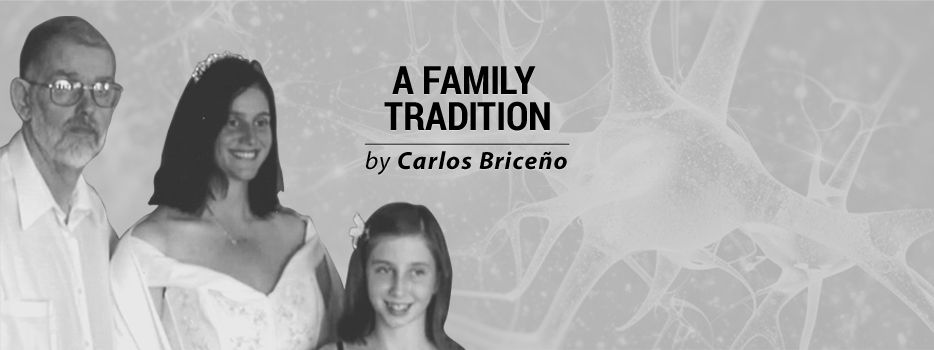Show, Don’t Tell: The Little Details That Count in Caregiving
Written by |

When I first understood that I was going to be a writer, I did what everyone does upon discovering a passion: I wrote and wrote and wrote. I realized that the best writing gushes with precise details. That quality of writing required a lot of practice.
So, I kept a journal and practiced writing what I had heard and observed during the day. Small details matter to a writer. They reveal character. They pique readers’ imaginations. They make your writing credible.
Show, don’t tell, as the famous writer’s maxim says.
Basketball players shoot baskets for hours in sweaty gyms. I wrote for hours in my air-conditioned room, remembering snippets of conversations, the color of someone’s sneakers, how a person reacted to a particular statement, and so on.
About two and a half years ago, I started noticing my wife’s eyes making unusual twitching movements. Was Jill rolling her eyes at my puns? Or, was she exhibiting a symptom called chorea, common to those with Huntington’s disease? Did I detect a slight tremor in her hand when I held it? Why were her toes wiggling? Or, was that just her feet being restless?
When Jill asked if I had noticed anything unusual about her, I told her I thought she had Huntington’s. She knew she had a 50% chance of getting it because her father had the disease.
My observations led her to get the genetic test that revealed she had it.
I share all this to say that caregivers often have to be the eyes, ears, hands, and feet of those they care for. As difficult as it is to witness someone else’s suffering, the only response is extending a hand to help someone up, or guiding a spoon into someone’s mouth to feed her, or picking up the phone to make a call.
The other day, my wife needed help with an issue unrelated to Huntington’s. She works at a private school and is extremely conscientious about not conducting personal tasks during work hours. In addition, she’s so busy that she usually doesn’t have time to make a personal call.
I told her I had no problem calling the doctor’s office to iron out the insurance issue, which deals with the hives she has suffered for months now. It’s not that I am not busy, but that I am her eyes, ears, hands, and feet.
I am glad I am, because everyone who is suffering needs an advocate. She was so grateful that I called the doctor’s office that she texted me her thanks, and later, after work, she thanked me twice in person.
What I did on her behalf was not a big deal. But her gratitude indicated that it was a big deal for her. She knows she will need help in the years ahead. She will need someone to feed her. She will need someone to push her wheelchair. She will need someone to reassure her when she’s anxious.
Just like a basketball player shoots jump shot after jump shot to improve his game, a caregiver needs to learn to develop a love for observing the little details.
In this way, caregivers become the eyes, ears, hands, and feet of the person they care for, which adds an interesting twist to the writer’s maxim I mentioned earlier. Showing love does speak louder than telling the person suffering that you love them — another way of saying that actions always speak louder than words.
***
Note: Huntington’s Disease News is strictly a news and information website about the disease. It does not provide medical advice, diagnosis, or treatment. This content is not intended to be a substitute for professional medical advice, diagnosis, or treatment. Always seek the advice of your physician or other qualified health provider with any questions you may have regarding a medical condition. Never disregard professional medical advice or delay in seeking it because of something you have read on this website. The opinions expressed in this column are not those of Huntington’s Disease News or its parent company, Bionews, and are intended to spark discussion about issues pertaining to Huntington’s disease.



Leave a comment
Fill in the required fields to post. Your email address will not be published.